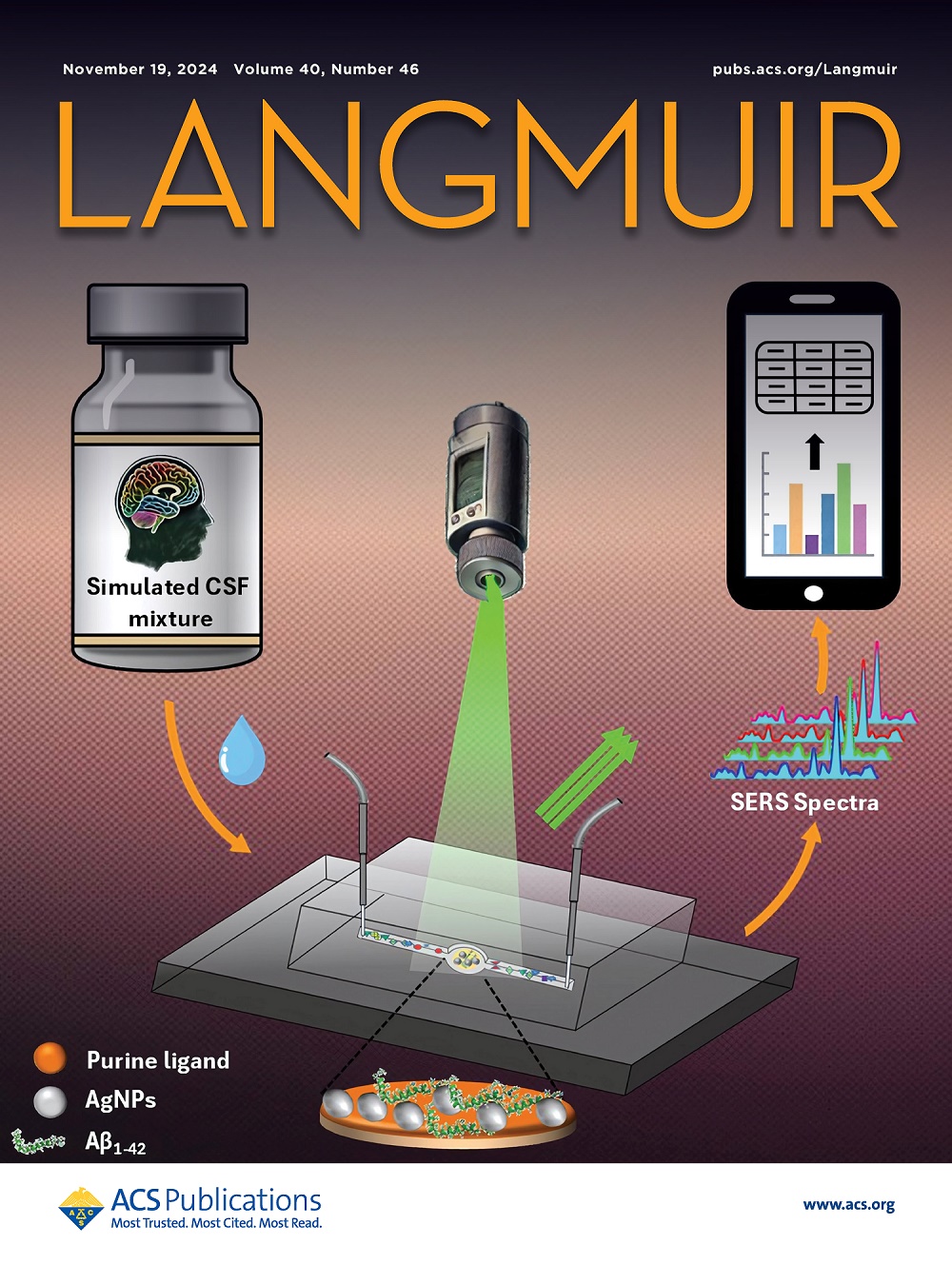Phase-Selective Organogelators with pH-Triggered Recovery for Efficient Oil Spill Treatment.
IF 3.7
2区 化学
Q2 CHEMISTRY, MULTIDISCIPLINARY
引用次数: 0
Abstract
Oil spill pollution poses a severe environmental threat, necessitating the development of efficient and sustainable remediation strategies. In this study, we designed and synthesized a series of pH-responsive phase-selective organogelators (pRPSOGs) based on d-gluconic acetal derivatives with long-chain amine groups to selectively solidify oil in oil/water mixtures, facilitating its rapid removal and recovery. The gelation behavior, phase-selective capability, and pH-switchable properties of the synthesized pRPSOGs were systematically investigated by using inversion tests, rheological analysis, Fourier transform infrared spectroscopy, X-ray diffraction, and small-angle X-ray scattering. Molecular simulations were further conducted to elucidate the self-assembly mechanism of the gelators. The optimized gelator, A12, exhibited excellent thermal stability and mechanical strength, ensuring structural integrity during oil spill recovery. Importantly, the pH-responsive property of A12 allowed for reversible solubility modulation, enabling efficient separation and recovery of both the gelator and oil phase without the need for energy-intensive distillation. This innovative strategy provided a reusable, energy-efficient, and environmentally friendly approach for oil spill treatment, offering promising applications for large-scale environmental remediation.相选择有机凝胶与ph触发回收高效溢油处理。
溢油污染对环境构成严重威胁,需要制定有效和可持续的补救策略。在本研究中,我们设计并合成了一系列基于长链胺基d-葡萄糖醛酸缩醛衍生物的ph响应相选择有机凝胶(pRPSOGs),以选择性固化油/水混合物中的油,促进其快速去除和回收。通过反演测试、流变学分析、傅里叶变换红外光谱、x射线衍射和小角度x射线散射,系统地研究了合成的pRPSOGs的凝胶行为、相选择能力和ph切换性能。通过分子模拟进一步阐明了凝胶的自组装机理。优化后的凝胶A12具有优异的热稳定性和机械强度,可确保溢油回收过程中的结构完整性。重要的是,A12的ph响应特性允许可逆的溶解度调节,从而实现凝胶相和油相的有效分离和回收,而无需高能耗蒸馏。这一创新策略为溢油处理提供了一种可重复使用、节能环保的方法,为大规模环境修复提供了有前景的应用。
本文章由计算机程序翻译,如有差异,请以英文原文为准。
求助全文
约1分钟内获得全文
求助全文
来源期刊

Langmuir
化学-材料科学:综合
CiteScore
6.50
自引率
10.30%
发文量
1464
审稿时长
2.1 months
期刊介绍:
Langmuir is an interdisciplinary journal publishing articles in the following subject categories:
Colloids: surfactants and self-assembly, dispersions, emulsions, foams
Interfaces: adsorption, reactions, films, forces
Biological Interfaces: biocolloids, biomolecular and biomimetic materials
Materials: nano- and mesostructured materials, polymers, gels, liquid crystals
Electrochemistry: interfacial charge transfer, charge transport, electrocatalysis, electrokinetic phenomena, bioelectrochemistry
Devices and Applications: sensors, fluidics, patterning, catalysis, photonic crystals
However, when high-impact, original work is submitted that does not fit within the above categories, decisions to accept or decline such papers will be based on one criteria: What Would Irving Do?
Langmuir ranks #2 in citations out of 136 journals in the category of Physical Chemistry with 113,157 total citations. The journal received an Impact Factor of 4.384*.
This journal is also indexed in the categories of Materials Science (ranked #1) and Multidisciplinary Chemistry (ranked #5).
 求助内容:
求助内容: 应助结果提醒方式:
应助结果提醒方式:


